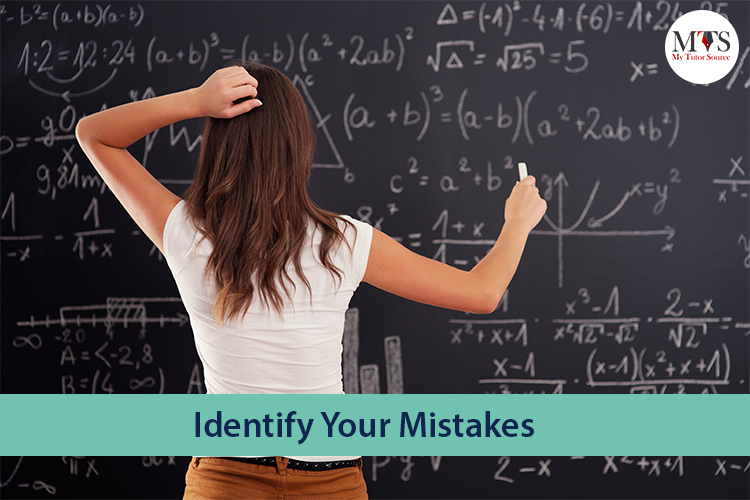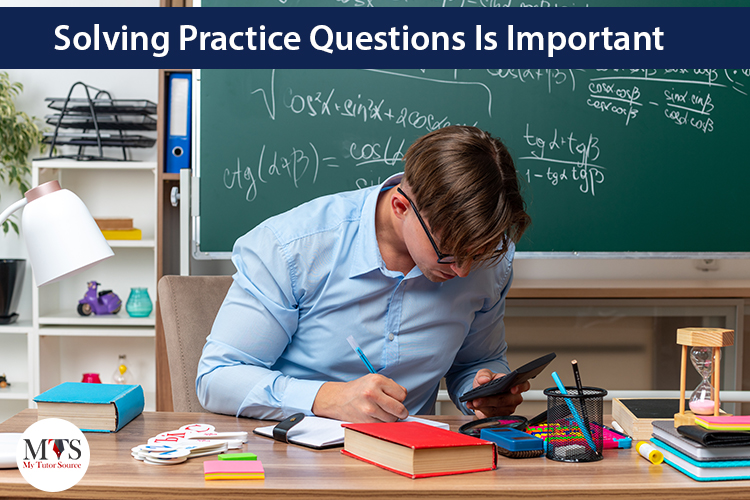

Whenever you ask a student what their favorite subject is, the answer is rarely Maths. In fact, if you ask students what subject they find the most difficult at school, the answer will always be Maths. However, students are always looking for an easy way to learn maths and they appreciate any help they can get to learn math quickly.
Here’s how to learn math easily without spending all your time on it, you can decide which one is the fastest way to learn maths yourself:
Complex math questions are usually based on simpler, more basic concepts, so you need to work on your foundations, first. Even if you feel like you have a good grasp of the basics, it’s still important to revise the foundations before you move on to more complex problems.
So, for instance, if you want to learn calculus, you won’t be able to learn it efficiently unless you are good at trigonometry and algebra.
Concentration is one of the most important aspects that you need to focus on when you’re studying something difficult like maths. Understanding tricky maths problems can be difficult if your attention is somewhere else, so try to be as attentive as you can when you sit down to study.
Memorizing times tables isn’t as important as being able to solve an unfamiliar problem in a semi-systematic fashion because you have developed a sense of numbers.
So, for instance, you already know that 9 × 9 = 81, but when you find yourself under pressure, for example, in an exam it’s easy to forget what 9 × 9 is or what 29 × 2 is.
This is where number sense comes into play. For example, multiplying by 10 is easier than with other numbers so you can calculate 9 × 10 = 90 first, and then subtract the extra “9” to get the answer ‘81’.
This type of strategy is better than memorization especially when you’ve to deal with complex math problems in situations when you need to be quick and you aren’t allowed a calculator.
You’re bound to make mistakes when trying to solve tricky math problems and there can be a possibility that you may not be able to get the right answer on the first try or even after so many tries. The reason behind that can be the minor mistakes that you may be making unknowingly.
The best way to work around this problem is by owning up to your mistakes. If you want to get rid of the scary effect that maths has on you, you need to keep an eye on your mistakes.

At some point, when you’re trying to solve a math problem, you may feel bad that some of the methods are difficult for you to overcome but instead of putting yourself down, you need to overcome those problems and keep practicing. And as you keep rectifying your mistakes you’ll notice that you aren’t repeating the mistakes as much as you used to.
Since maths is usually based on numbers people have a common misconception about it that there are no theories or concepts in maths. As a matter of fact, a lot of problems in maths are based on broad theoretical concepts. By just focusing on the numbers, students end up making questions harder than they are supposed to be. Before you start solving a question, try to get to the bottom of it to find out what concept it’s based on.
You need to understand that you can always ask for help. Even if you think a question is way too easy for you to not understand or that you already know a concept extremely well, we recommend asking for extra guidance to help you go in the right direction. You can get yourself a maths tutor, ask your professors for help, or consult your peers for group study sessions to work on your problem-solving skills.
Math’s a strange subject because you learn so much of it so quickly if you keep doing it. However, at the same time, you forget it just as easily as soon as you get out of touch with it.
Reading books and studying different examples can be useful but it cannot substitute the effect that practicing the questions has. In fact, practicing is the fastest way to learn maths, so don’t evade the practice questions in your textbook or your school’s website
Plus, you’ll be able to understand how to answer a certain type of question and how to avoid making mistakes. However, if you still keep making then you should consult your book to see what concept you are not getting right.

This has to be one of the most common mistakes that students make when they’re in school or college. Students think that they can easily catch up on the subject or the topic later but unfortunately that isn’t the case.
Skipping even one lecture can make you miss out on a foundational concept that every succeeding lecture will be based on.
Words like variables, constants, quadratics, and coefficients show up in Maths books and questions all the time, but you need to understand their meaning if you want to get anywhere with your studying. We recommend writing key terms and definitions in a notebook that you can refer to.
Your ultimate goal to learn Math should be to use it outside your classroom, not just to pass an exam. To achieve that you need to break free from your textbooks and study materials and apply maths to real-life situations.
This can be more difficult than just solving a textbook problem but once you start applying maths in the outer world you’ll soon become familiar with the pattern. Solving math problems in real life will teach you how to recognize a solution, translate it into mathematical concepts, and then solve the problem. It can be difficult in the beginning but it’ll pay off.
Word problems are one of the most important and impactful parts of math. Surprisingly, they make up the majority of students’ textbooks. Designed to teach students strategies to get through different situations by using maths, these problems can be a bit intimidating for some students.
If you’re one of the students who are scared of word problems, here’s what you need to do:
Spotting the important bits of information and then writing them down can help you approach a problem more effortlessly and easily. Practicing will also help you easily spot the different terms that you need to find and the kind of solution or formula you need to apply at the first glance.
Regardless of the subject, you’re studying, not just maths, you’re more likely to learn it, if you engage with it and enjoy it as much as you can. Obviously, you don’t have to be eagerly waiting to open your maths textbook but you can try to enjoy the subject genuinely, instead of treating it as a chore that you’ve to do by hook or by crook.
Try being inquisitive or counter-intuitive when you’re learning something new. Use analogies to make underlying concepts more vivid and fun for you to learn. This might not seem a particularly fast way to learn maths, but it’s effective especially when you start understanding the underlying concept even though you’re using humor to do so. Besides, once you understand how it works nothing can hold you back.
This one’s closely related to the idea preceding it. When it comes to mathematical problems a creative approach is what you need. To make your study sessions more creative you need to start involving some interactive ideas.
One really interesting thing you can do is add some other elements. For instance, if you find solving mathematical problems difficult, then you can use practical elements to understand the question better, and then you can work towards finding the answer.
It is completely natural to struggle with maths and not be good at it. Trust us, we have all been there. We all have searched how to study maths for how to learn maths fast but haven’t found any fruitful advice. That is the reason why we decided to write a guide that actually has some actionable advice to help students get the best grades.
Good luck!